Understanding Mental Health
Importance of Mental Health
Mental health is fundamental to everyone’s general well-being and quality of life. It encompasses emotional, psychological, and social well-being, affecting how individuals think, feel, and act as they manage life’s challenges. It is essential at every stage of life, from childhood through aging.
Impact on Daily Life
The presence of mental health issues can significantly disrupt a person’s daily life. When left untreated, mental illness often leads to severe emotional, behavioral, and physical health problems. For example, complications may include disabilities, substance use disorders, and severe physical symptoms like unexplained aches and pains (Mayo Clinic).
Mental health problems can also make it difficult to cope with everyday duties, such as keeping a job or interacting with others. Financial issues can exacerbate these challenges, leading to a cycle of worsening mental health. Approximately one-quarter of homeless adults in shelters have a serious mental illness (High Focus Centers ).
Furthermore, symptoms of mental illness can manifest in various ways, affecting one’s emotional state, thoughts, behaviors, and even physical health. This includes symptoms like stomach pain, back pain, headaches, or other unexplained physical ailments.
To learn more about specific disorders and treatments, visit our sections on types and treatments of anxiety disorders, and treatments for post-traumatic stress disorder. Understanding and addressing mental health is essential for a balanced and fulfilling life.
Signs of Mental Health Issues
Mental health plays a pivotal role in an individual’s overall well-being. Recognizing the signs of mental health issues early can lead to timely intervention and better outcomes. Here, we explore the emotional, behavioral, and social signs that may indicate mental health problems.
Emotional Signs
Emotional symptoms often serve as the first indicators of a mental health issue. These signs can include prolonged periods of intense sadness, anxiety, or irritability. Sleep disturbances such as insomnia or excessive sleep can also signal an underlying issue (SAMHSA).
Some common emotional signs include:
- Persistent feelings of sadness or depression
- Overwhelming anxiety or panicking episodes
- Irritability or anger without clear reason
- Frequent mood swings
- Loss of interest in previously enjoyed activities
Behavioral Signs
Behavioral changes can often be observed by family members, friends, or colleagues. These includes actions that are detrimental to one’s well-being and signal a need for attention.
| Behavioral Signs | Description |
|---|---|
| Changes in Eating Habits | Sudden weight loss or gain, overeating, or lack of appetite |
| Substance Abuse | Increased consumption of alcohol or drugs |
| Neglecting Responsibilities | Poor performance at work or school |
| Isolation | Withdrawal from social interactions |
| Risky Behavior | Engaging in dangerous activities or self-harm |
These behavioral deviations may necessitate a consultation with a healthcare provider. For more strategies on managing these symptoms, visit our article on 12 coping mechanisms for ADHD.
Social Signs
Social interactions can reveal significant cues about someone’s mental health. A person experiencing mental health issues might begin to exhibit changes in their relationships and social habits.
| Social Signs | Description |
|---|---|
| Relationship Strain | Increased arguments or conflicts with loved ones |
| Avoidance of Social Interaction | Skipping social events and preferring to be alone |
| Difficulty in Communication | Trouble expressing thoughts or understanding conversations |
| Disinterest in Social Activities | Lack of enthusiasm for activities that involve others |
| Decline in Performance | Struggles in maintaining work or academic performance |
Identifying these social signs is crucial for early intervention. Learn how to approach these issues in our detailed guide on how to talk about mental health.
Recognizing these signs early can lead to timely diagnosis and treatment. If you notice any of these signs in yourself or a loved one, consider seeking help from specialized professionals. For more information on mental health treatments, explore blog articles on types and treatments of anxiety disorders and treatments for post-traumatic stress disorder.
Mental Illness in Children
Several challenges come with addressing mental health issues in children. Recognizing signs and understanding the diagnostic process are crucial steps in ensuring they receive the support they need.
Challenges in Diagnosis
Diagnosing mental health disorders in children can be difficult. Many parents may not notice the early signs of mental health issues, resulting in delayed intervention (Mayo Clinic). Concerns regarding stigma, the use of medications, the cost of treatment, and accessibility can also prevent parents from seeking care. This highlights the need for awareness and education on the importance of mental health.
Warning Signs
Recognizing the warning signs of mental health disorders in children is essential for early intervention. Some common signs parents, caregivers, and teachers should watch for include:
- Sudden changes in behavior
- Prolonged sadness or withdrawal from social interactions
- Difficulty concentrating
- Excessive worries or fears
- Outbursts of anger or sudden mood swings
Consult a healthcare professional if these signs are observed.
Table: Common Warning Signs for Mental Illness in Children
| Warning Sign | Description |
|---|---|
| Behavioral Changes | Sudden alterations in behavior or personality |
| Prolonged Sadness | Long periods of sadness or withdrawal from social activities |
| Difficulty Concentrating | Issues with focus and attention, impacting school performance |
| Excessive Worries | Overwhelming fears or worries, possibly leading to physical manifestations |
| Anger Outbursts | Unprovoked anger or frequent mood swings |
To learn more about recognizing anxiety disorders in children, visit types and treatments of anxiety disorders.
Diagnostic Process
The diagnostic process for mental health issues in children involves several steps. Healthcare professionals use multiple methods to ensure an accurate diagnosis:
- Initial Assessment: An evaluation of the child’s medical history and symptoms.
- Behavioral Observation: Examining the child’s interaction with peers and adults.
- Screening Tools: Utilizing standardized questionnaires to gauge the severity and frequency of symptoms.
- Consultation with Specialists: Involving psychologists or psychiatrists for comprehensive evaluations.
| Diagnostic Step | Description |
|---|---|
| Initial Assessment | Review of medical history and presenting symptoms |
| Behavioral Observation | Monitoring of interactions and behavior over time |
| Screening Tools | Administering standardized questionnaires |
| Specialist Consultation | In-depth evaluation by a psychologist or psychiatrist |
Early and accurate diagnosis is the first step towards effective treatment. For more information on support options, visit anxiety disorder psychiatric and holistic strategies for a stress free life. Additionally, understanding the diagnostic process can help parents to navigate the system more effectively and ensure their child receives the appropriate care.
Treatment and Support
Addressing the signs of mental health issues effectively requires recognizing the need for professional care, understanding treatment options, and leveraging the role of family support.
Specialized Healthcare Professionals
Mental health conditions necessitate the involvement of specialized healthcare professionals to offer accurate diagnosis and effective treatment. According to the Mayo Clinic, key professionals include:
- Psychiatrists: Medical doctors specializing in the diagnosis and treatment of mental illness.
- Psychologists: Professionals focusing on therapy and counseling for mental and behavioral issues.
- Clinical Social Workers: Experts providing counseling and support for social and mental health challenges.
- Psychiatric Nurse Practitioners: Nurses with specialized training in mental health care.
Treatment Options
A range of treatment options is available to manage mental health conditions. These treatments are tailored to individual needs and may include therapy, medication, or a combination of both Mayo Clinic:
| Treatment Type | Description | Internal Link |
|---|---|---|
| Therapy | Involves counseling sessions with mental health professionals. | types and treatments of anxiety disorders |
| Medication | Includes antidepressants, antipsychotics, mood stabilizers, and anti-anxiety drugs. | treatments for post-traumatic stress disorder |
| Combined Treatment | Utilizes both therapy and medication for comprehensive care. | anxiety disorder psychiatric and holistic strategies for a stress free life |
It’s crucial to consult with healthcare providers to determine the most appropriate treatment plan.
Family Support
Family support plays an essential role in the treatment and recovery of individuals with mental health conditions. According to the American Psychiatric Association, family members can contribute by:
- Participating in Therapy: Engaging in family or group counseling sessions.
- Providing Emotional Support: Offering understanding, patience, and encouragement.
- Managing Stigma: Helping reduce stigma and encourage seeking help.
Families must also prioritize their own well-being. Engaging in self-care strategies and discussing support options with mental health professionals helps maintain their health while supporting their loved ones.
By understanding the roles of specialized professionals, exploring various treatment options, and leveraging family support, the journey towards managing and treating mental health issues becomes more structured and effective.
Consequences of Untreated Mental Illness
When signs of mental health issues go unaddressed, the consequences can be severe and multifaceted, affecting physical health, social interactions, and, in some cases, behavior.
Impact on Physical Health
Neglecting mental health can lead to significant physical health problems. Chronic stress, a common byproduct of untreated mental illness, has been linked to a higher risk of strokes, heart attacks, and obesity. These conditions highlight the importance of addressing mental health issues promptly to avoid serious physical health consequences (High Focus Centers).
| Physical Health Issue | Link to Untreated Mental Illness |
|---|---|
| Stroke | Increased risk due to chronic stress |
| Heart Attack | Higher likelihood influenced by stress |
| Obesity | Connection to unmanaged stress |
Social Implications
The social implications of untreated mental health issues are profound. Mental illness can make it difficult to cope with everyday life, such as keeping a job or interacting with others. Financial challenges often compound the difficulty of treating mental illness, further exacerbating an individual’s circumstances. For instance, approximately one-quarter of homeless adults in shelters have a serious mental illness (High Focus Centers).
Untreated mental health issues can also lead to social isolation. The inability to engage in social activities can deteriorate relationships with family and friends, leading to further mental health decline.
| Social Implication | Statistic |
|---|---|
| Homelessness | 25% of homeless adults in shelters have serious mental illness |
| Job Retention | Difficulty in maintaining employment |
Relationship with Violence
There is a common misconception that mental illness leads to violent behavior. While untreated mental illness can make it challenging to conform to societal norms, leading to inappropriate behavior or actions that might be misconstrued, it doesn’t inherently lead to violence. However, studies indicate that a significant percentage of incarcerated individuals have serious mental illnesses:
- Almost three-quarters of female inmates
- One-half of male inmates (High Focus Centers)
It’s crucial to address these mental health issues to mitigate such outcomes. Additionally, approximately 90% of suicides are attributable to untreated mental illness, underscoring the devastating impact of neglecting mental health.
If an individual exhibits suicidal thoughts or intent, or thoughts of harming others, immediate attention is necessary. Several symptoms causing serious problems in the ability to study, work, or relate to others necessitate consultation with a physician or mental health professional (American Psychiatric Association).
For further information on coping mechanisms and treatments, explore our articles on anxiety disorder psychiatric and holistic strategies for a stress free life, how to talk about mental health, and types and treatments of anxiety disorders.
Early Intervention and Prevention
Addressing mental health issues promptly is vital for minimizing their impact and improving overall mental well-being. This section explores why early detection, proactive intervention, and preventative measures are essential components in managing mental health effectively.
Importance of Early Detection
Early detection of mental health issues can significantly reduce the severity and impact of the illness. Identifying [signs of mental health issues] early can lead to quicker intervention and better outcomes (ADAA). Recognizing symptoms such as emotional distress, behavioral changes, or social withdrawal can help in seeking timely support. For example, people experiencing suicidal thoughts or intent require immediate attention, underscoring the importance of early detection (American Psychiatric Association).
Benefits of Early Intervention
Early intervention can greatly diminish the severity of mental health illnesses, prevent hospitalization, and improve long-term prognosis (American Psychiatric Association). Research indicates that more than a decade of studies around the world support the efficacy of early intervention in mental health treatment. Intervening early can help prevent minor symptoms from developing into serious conditions.
| Benefits of Early Intervention |
|---|
| Reduces Severity of Symptoms |
| Prevents Hospitalization |
| Improves Long-term Prognosis |
| Enhances Quality of Life |
| Delays Onset of Major Illness |
By addressing symptoms proactively, individuals can avoid significant interruptions in their daily lives and functions. Comprehensive treatment may include ongoing individual and family counseling, vocational and educational support, participation in a multi-family problem-solving group, and medication when appropriate.
Preventative Measures
Implementing preventative measures can help protect mental health and reduce the risk of developing severe mental health issues. Educational programs to raise awareness and reduce stigma are crucial in encouraging people to seek help early. Recognizing that stigma may pose a significant barrier to seeking help is essential. Hence, it is important to create supportive environments where individuals feel comfortable discussing their mental health concerns (how to talk about mental health).
Preventative strategies include:
Promoting Mental Health Education
- Raising awareness about mental health issues
- Educating about early warning signs
- Encouraging open discussions about mental health
Providing Access to Support Services
- Availability of counseling and therapy
- Community support groups
- Online mental health resources
Encouraging Healthy Lifestyle Choices
- Regular physical activity
- Balanced diet and nutrition
- Sufficient sleep and relaxation (types of sleep disorders)
These preventative measures can foster a proactive approach to mental health, leading to better management of [mental and behavioral health disorders] and enhancing overall well-being.
For those dealing with conditions like anxiety, explore various types and treatments of anxiety disorders to understand available options. Similarly, individuals affected by post-traumatic stress may find value in treatments for post-traumatic stress disorder.











